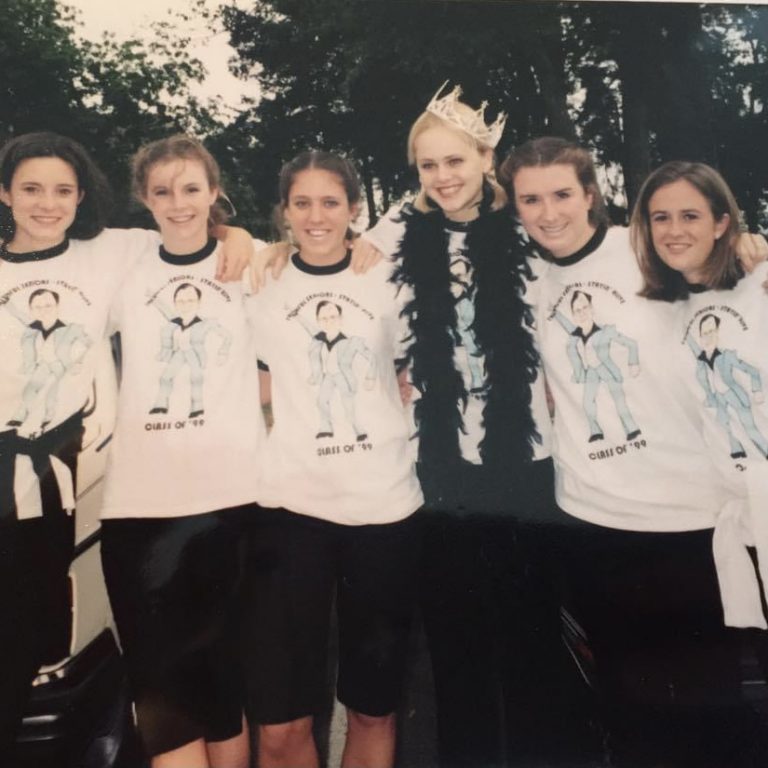The Talk :: Discussing Sexuality with your Children at all Ages and Stages

“I can do this, I can do this,” she said. “One and done; it’s that simple, awkward for a moment, but then I’m done,” she preached to herself as she asked her 12-year-old daughter one Sunday afternoon to come into the sunroom for “the talk.” My how times have changed and my how times have not changed. We are evolving and trying to stay caught up with what is cool, hip, and relevant; yet somehow we have not evolved into teaching our children how to gain a healthy view of their sexuality. We still believe it is “the one big talk.” But it just isn’t.
It is one talk at every developmental milestone. It is one talk at every time they come to you with questions. It is one talk after you have watched something questionable on TV or seen in a magazine ad. It is a dialogue, creating teachable moments, ongoing and ever-evolving.
“At what age do you recommend that parents begin the process of sex education for their children?” Joyce and Clifford Penner, sex therapists in California and authors of many great books on healthy sexuality, answer: at birth. We think about our sexuality as a vital dimension of who we are throughout life. Our sexuality is so much more than sexual intercourse. When parents discuss sexual facts with their children openly and with respect and dignity, children will develop pride in their bodies and adopt a healthy attitude about sex. This does not start at 12-years-old, and it does not start and end with one conversation. In the beginning, children learn to have a healthy view of sexuality by the interactions between mom and dad—the affection, the communication, and the exercise of power. Our children learn much about the husband-wife relationship by observing it. A healthy view of sexuality begins with viewing how parents engage in playful affection, their tone of voices as they talk to each other, and how they interact as male and female.
As children continue to grow, having a strong foundation formed early allows for information to be built upon and developed into a complex view of their sexuality. This foundation should include the principle that sex is natural and good. Our sexuality, bodily pleasure, and sexual intercourse are part of a perfect design and plan. They are GOOD!

Sexual curiosity is natural. Children should never be punished or embarrassed for showing their curiosity. It is natural to ask questions about sex and to discover their own bodies. Sexual responsiveness is natural. Our sexual responses are a part of the functioning of each person’s body. It is not a skill to be learned but an involuntary response that begins at birth and continues throughout life in healthy people.
Sexual responsibility belongs to each person. Sexual feelings need to be differentiated from sexual actions or behaviors. What we decide to do without involuntary feelings is our responsibility. Our actions and decisions are within our control. With this foundation, at each developmental milestone, you can build on their knowledge and give them the gift of a healthy view of their sexuality.
Always look for teachable moments! Create opportunities to open the topic of sexuality: read books on sexuality, go to the zoo, talk about pregnant aunt Nancy, etc. It is never too late. Earlier is better, but any sex education we give our kids is equipping them. Sex education is the shaping of character. Research shows time and time again that children desire their parents to be the primary sex educators, yet too often peers are performing in that role. Stay engaged with your children through dialogue, time spent together, and physical touch to ensure that you are their educators. Be in physical contact with your children; give them hugs, put your arms around them, wrestle with them. Virginia Satir, an expert on marriage and the family, says we all need four hugs a day to survive, eight hugs to maintain, and twelve hugs to grow.

Remember, first messages are the most potent. Be wise in how you handle the talks and try to speak less from emotion and more from rational thought. Accurate and explicit messages are better than cryptic and vague ones. Sexuality is not the most important thing in life. Strive to put sexuality into its proper perspective.
And remember there are no hopeless situations. Healing and recovery can be attained even in the worst situations. Teach and practice the disciplines of having open discussions, confessing, forgiveness, reconciliation, and giving lots of grace to your children.
So, you got this! You can do it. Over and over again! Ha! Equip your children boldly for how to handle their bodies, their bodily changes, their hormones, and their choices. You are giving your children the gift of a healthy view of sexuality that will impact them throughout their entire lifespan. Way to go!
Katherine Blackney, PH.D., LPC-MHSP, Clinical Sex Therapist

Dr. Blackney is a psychologist here in the Greater Memphis area and has been providing counseling and teaching services for over a decade. Through extensive training and education, Dr. Blackney specializes in helping patients work through a wide variety of issues. She can also be found leading speaking engagements throughout the Memphis community on topics such as, “How to Talk to Your Kids About Healthy Sexuality.”
We are grateful for her wisdom and insight here at the Memphis Moms Blog!







